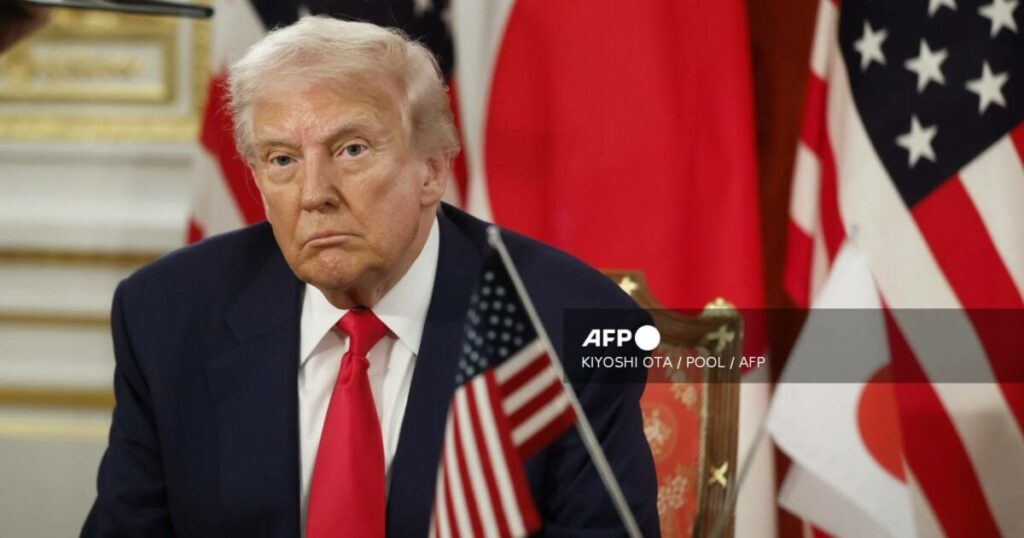The Centre for the Promotion of Private Enterprise has warned that the recent threat of possible military action against Nigeria by the President of the United States, Donald Trump, could erode investor confidence, among other far-reaching implications for the economy.
This observation is contained in its policy brief titled ‘Potential Economic Implications of the U.S. Threat of Military Action on Nigeria,’ which was signed by the Director/Chief Executive Officer, Dr Muda Yusuf.
The PUNCH reported that Trump, had named Nigeria as a “country of particular concern” on 31 October 2025, saying the development reflects a global worry over Nigeria’s rising insecurity. Via his Truth Social platform on Saturday, Trump directed the Department of War to prepare for “possible action” if the killings continued.
Providing the economic impact of the threat, the CPPE stated that “although the statement appears to have been made on the basis of incomplete intelligence and misjudged assumptions, its source, the President of the United States, magnifies its potential impact. Regardless of its inaccuracy, the pronouncement has already generated economic, diplomatic, and perceptional consequences for Nigeria. The statement risks undermining the country’s image as a stable investment destination, unsettling financial markets, and eroding confidence among both domestic and international investors”.
The document highlighted that “even the mere threat of military action by a global superpower has inflicted significant reputational damage on Nigeria’s image as a safe and viable investment destination”.
It added that such rhetoric can trigger “declines in foreign direct investment inflows, capital flight from portfolio and equity investors, a decline in venture capital and startup funding, and heightened country risk ratings and investor anxiety”.
The CPPE further cautioned that “market volatility would likely intensify as investors reassess Nigeria’s risk profile,” noting that the likely consequences include “falling stock market valuations, rising country risk premiums and insurance costs, higher sovereign bond yields, and Naira depreciation due to capital outflows and portfolio reversals”.
The brief also warned that “an escalation in perceived geopolitical risk could tighten financial conditions and distort macroeconomic indicators,” adding that “Nigeria may experience rising interest rates, weakened currency and higher inflationary pressures, reduced foreign reserves and lower external buffers, and pressure on fiscal balances from increased defence spending and lower investment inflows”.
The CPPE boss urged the government to “adopt a strategic and proactive diplomatic response. Key policy measures should include high-level diplomatic engagement. Immediate bilateral discussions with the U.S. government to clarify facts and de-escalate rhetoric. Deepening cooperation with U.S. and regional partners on intelligence, counterterrorism, and peacebuilding. Coordinated public messaging to reassure domestic and international investors of Nigeria’s stability and continued reforms in governance, transparency, and macroeconomic management to reinforce resilience against external shocks”.
Concluding, the policy brief described the U.S. President’s threat as “unwarranted, counterproductive, and economically destabilising. It is a disproportionate response that fails to reflect the complexity of Nigeria’s internal security dynamics. Such statements send unsettling signals to investors, heighten risk perception, and undermine confidence in Nigeria’s economy. While Nigeria must continue to strengthen its internal security architecture and governance, any external engagement should be cooperative, not coercive.
“Unilateral military action would destabilise Nigeria’s economy, threaten regional stability, and aggravate humanitarian conditions. The constructive path forward lies in diplomacy, partnership, and shared commitment to peace, development, and mutual respect for sovereignty”.
President Tinubu faulted the claims of the US President in a statement on Sunday, stating, “Since 2023, our administration has maintained an open and active engagement with Christian and Muslim leaders alike and continues to address security challenges which affect citizens across faiths and regions.
“The characterisation of Nigeria as religiously intolerant does not reflect our national reality, nor does it take into consideration the consistent and sincere efforts of the government to safeguard freedom of religion and beliefs for all Nigerians. Religious freedom and tolerance have been a core tenet of our collective identity and shall always remain so. Nigeria opposes religious persecution and does not encourage it. Nigeria is a country with constitutional guarantees to protect citizens of all faiths”.















